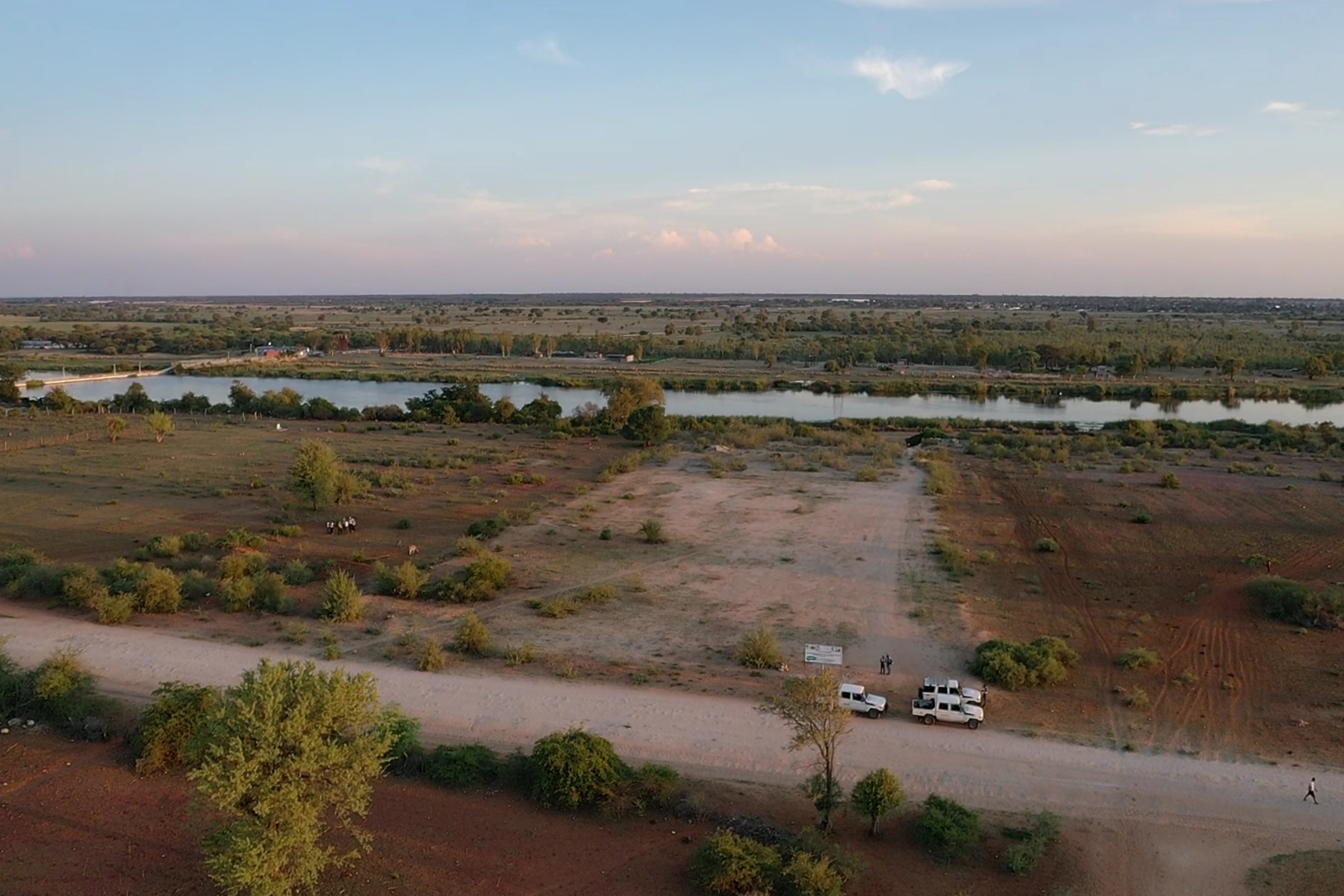
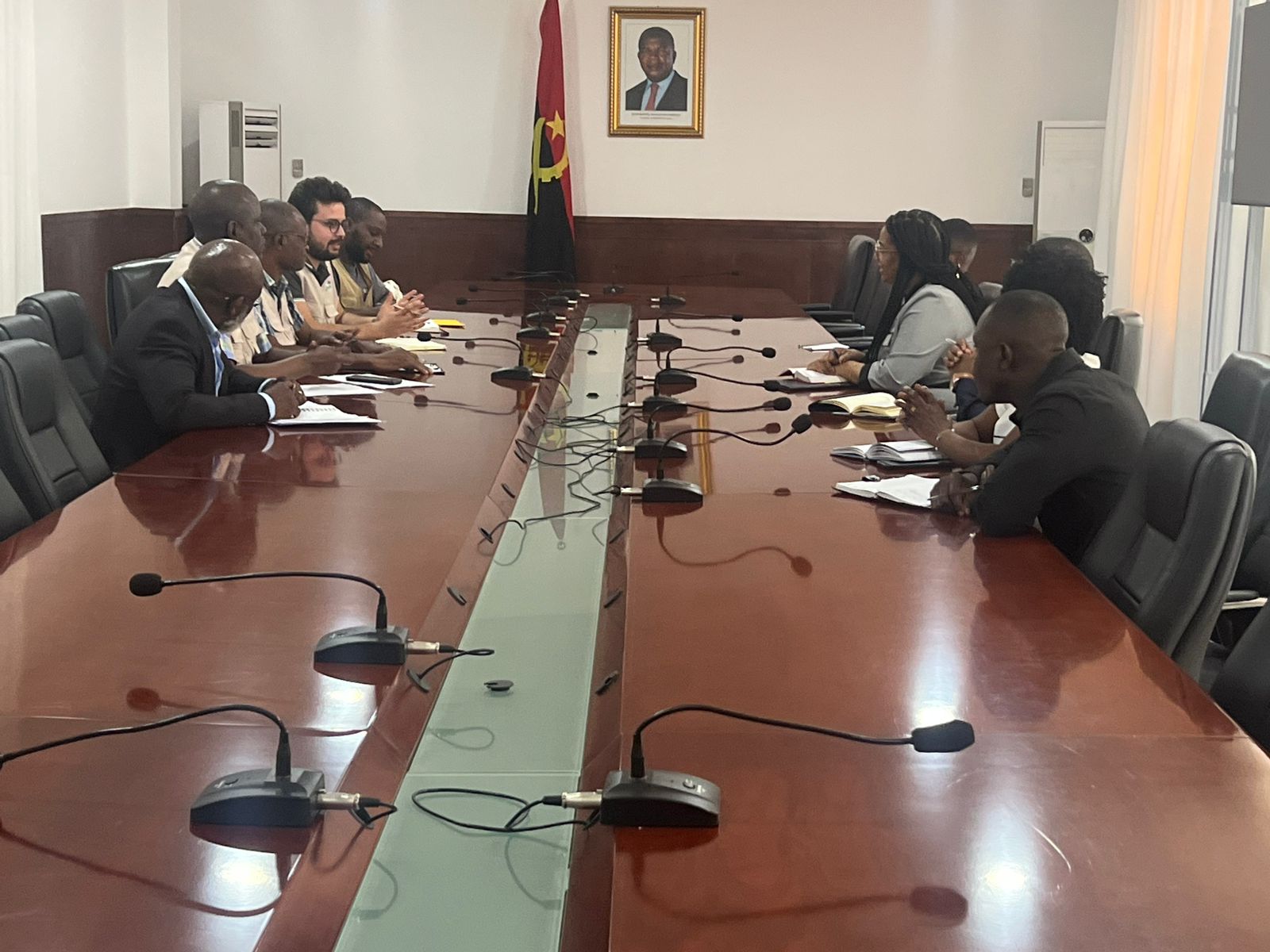
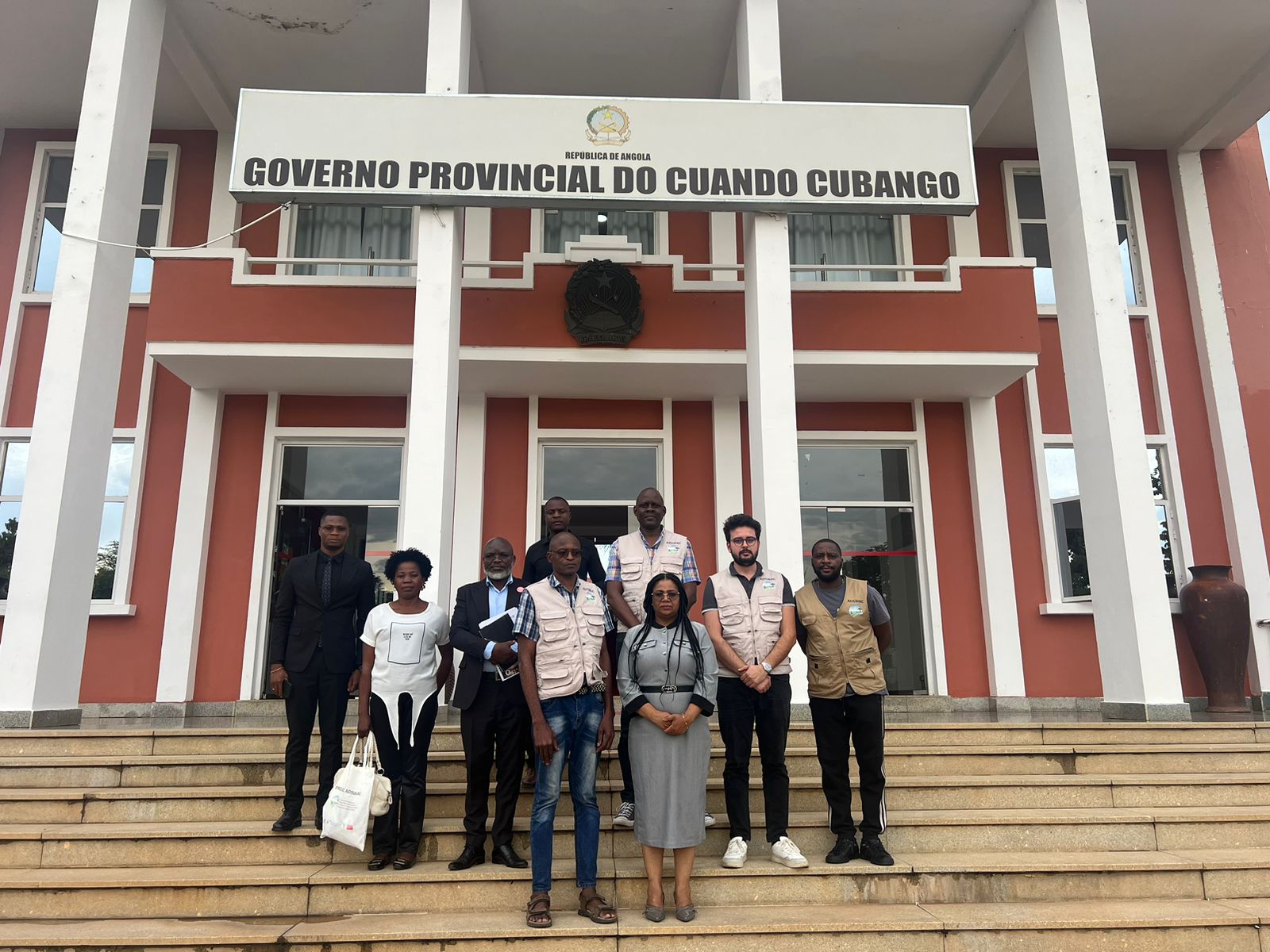
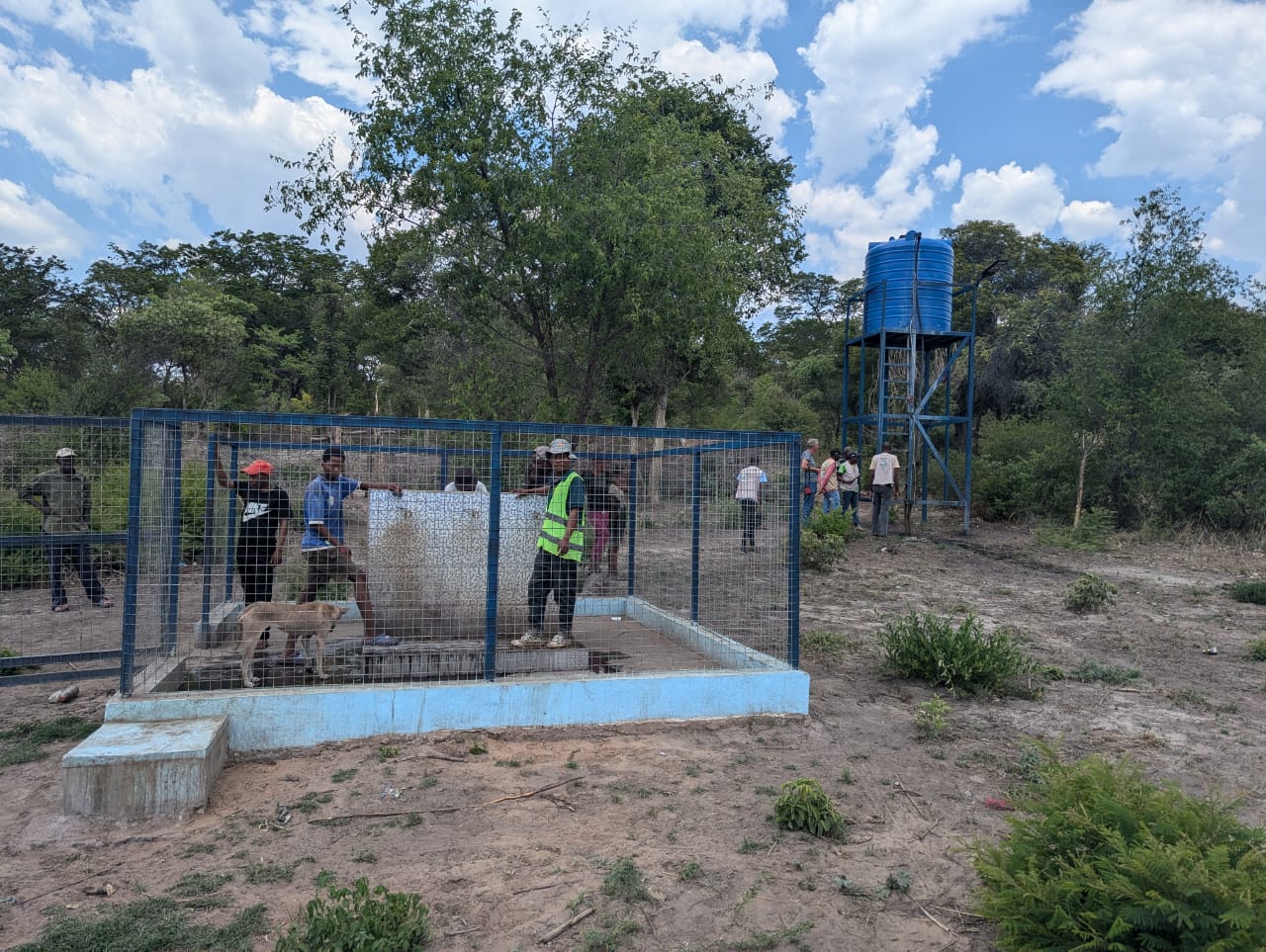
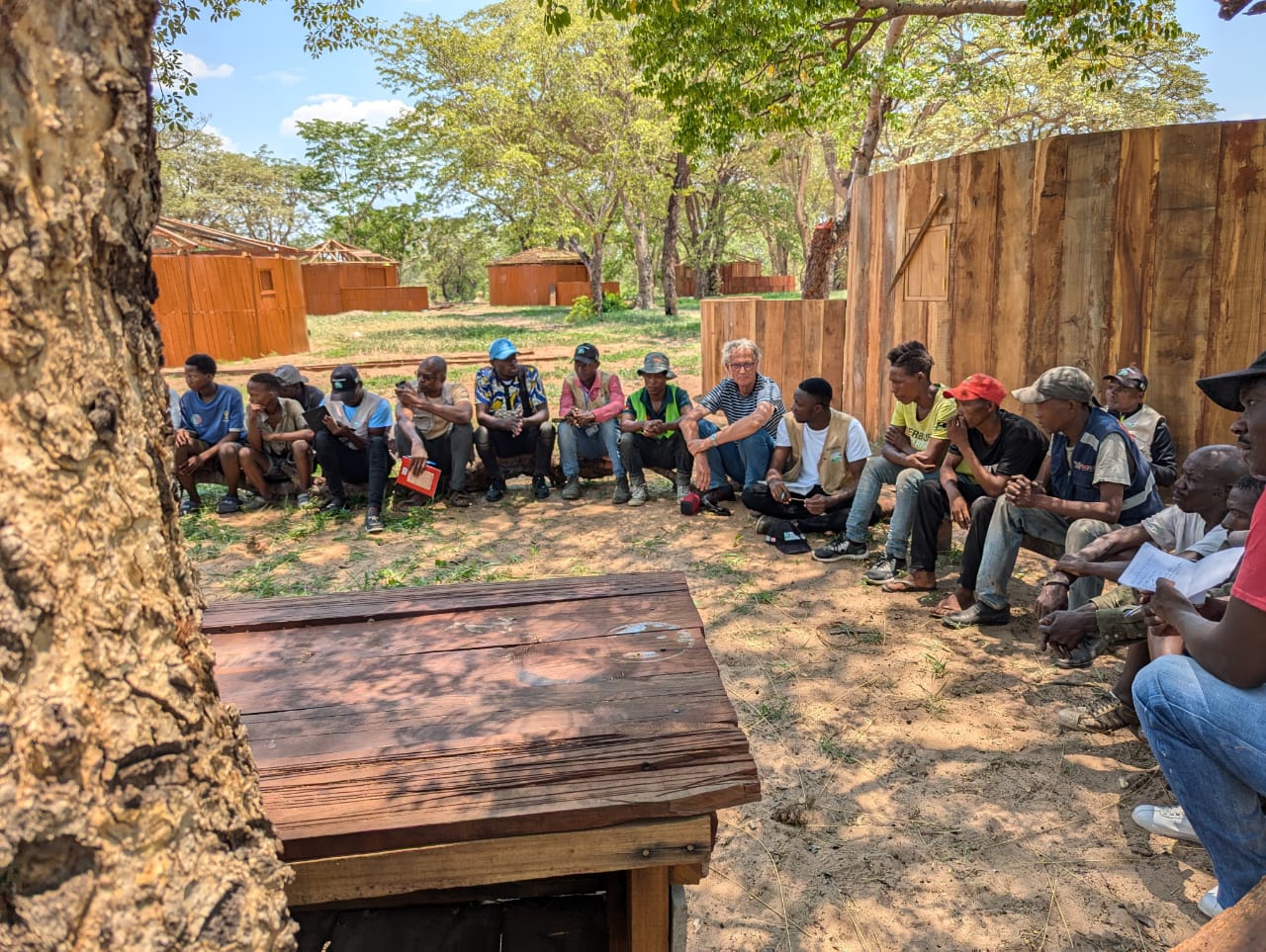
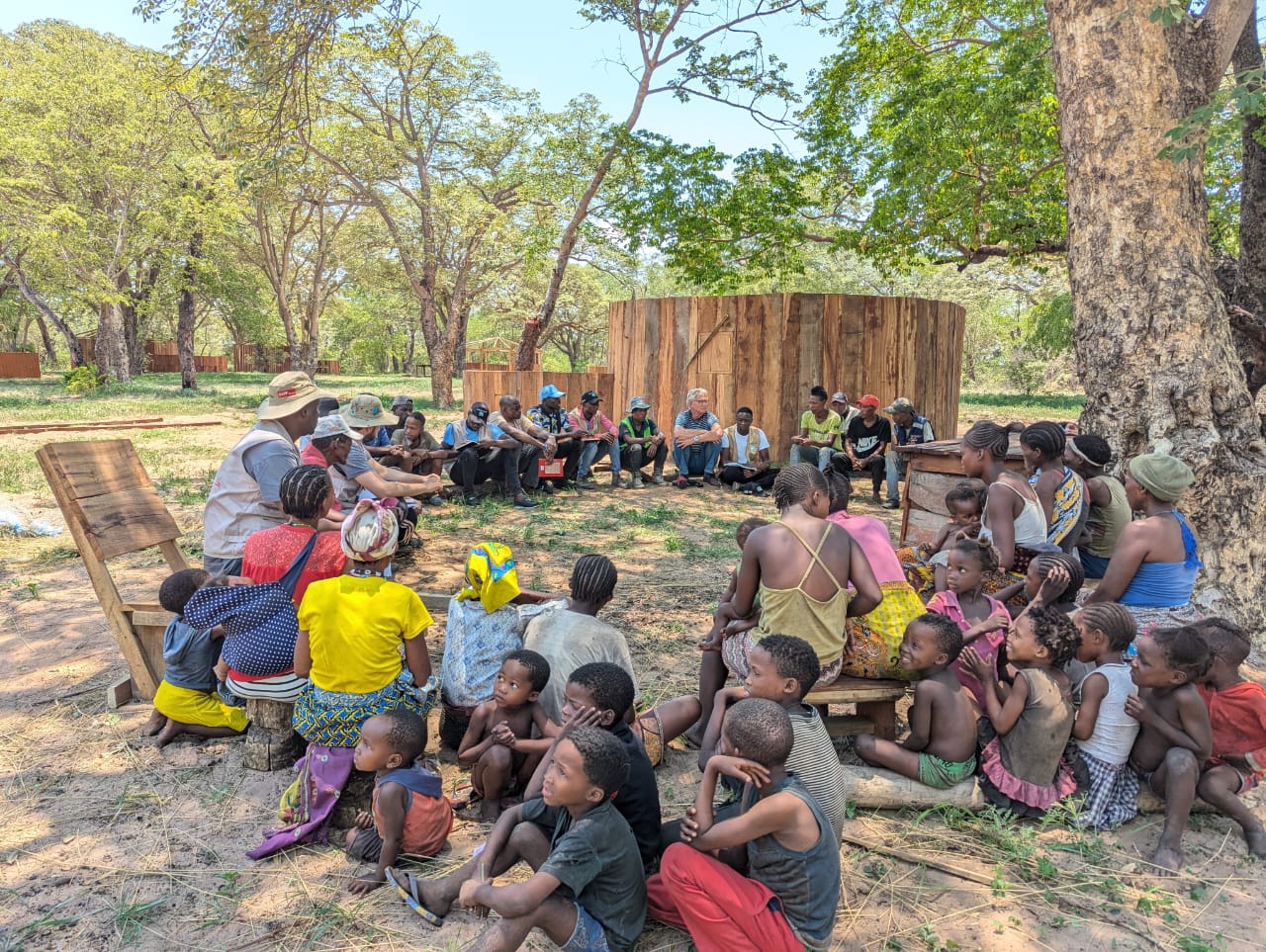
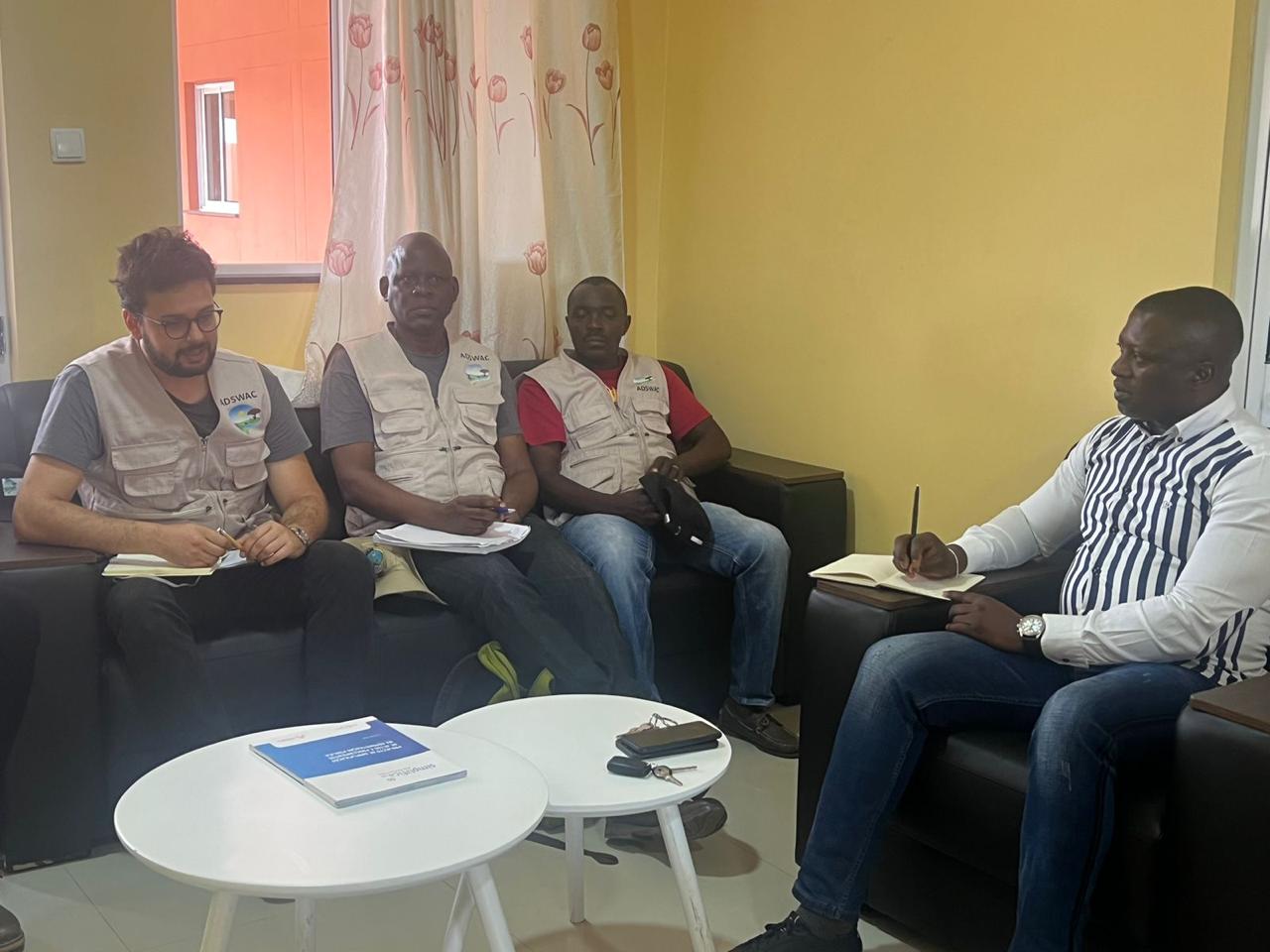
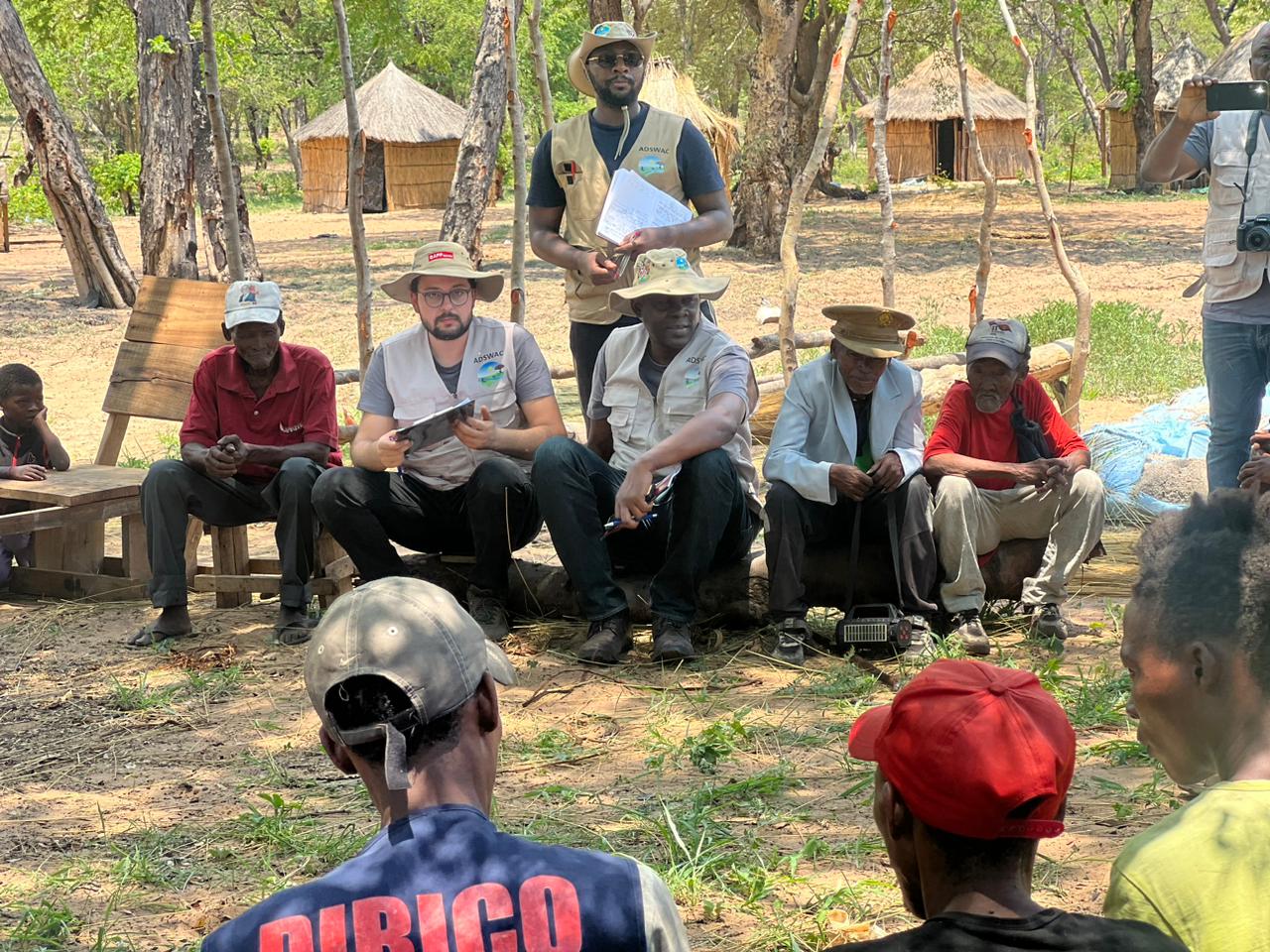
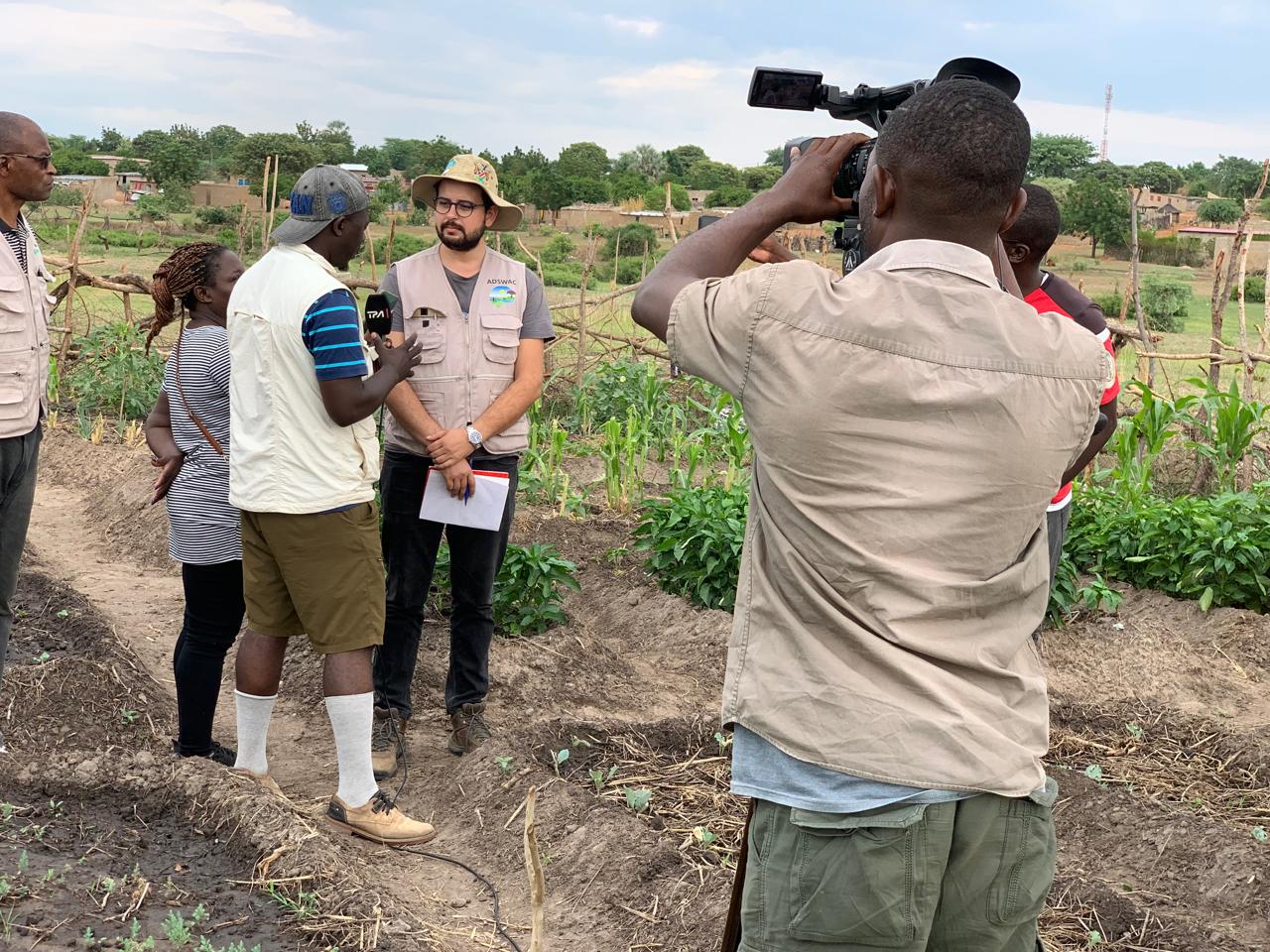
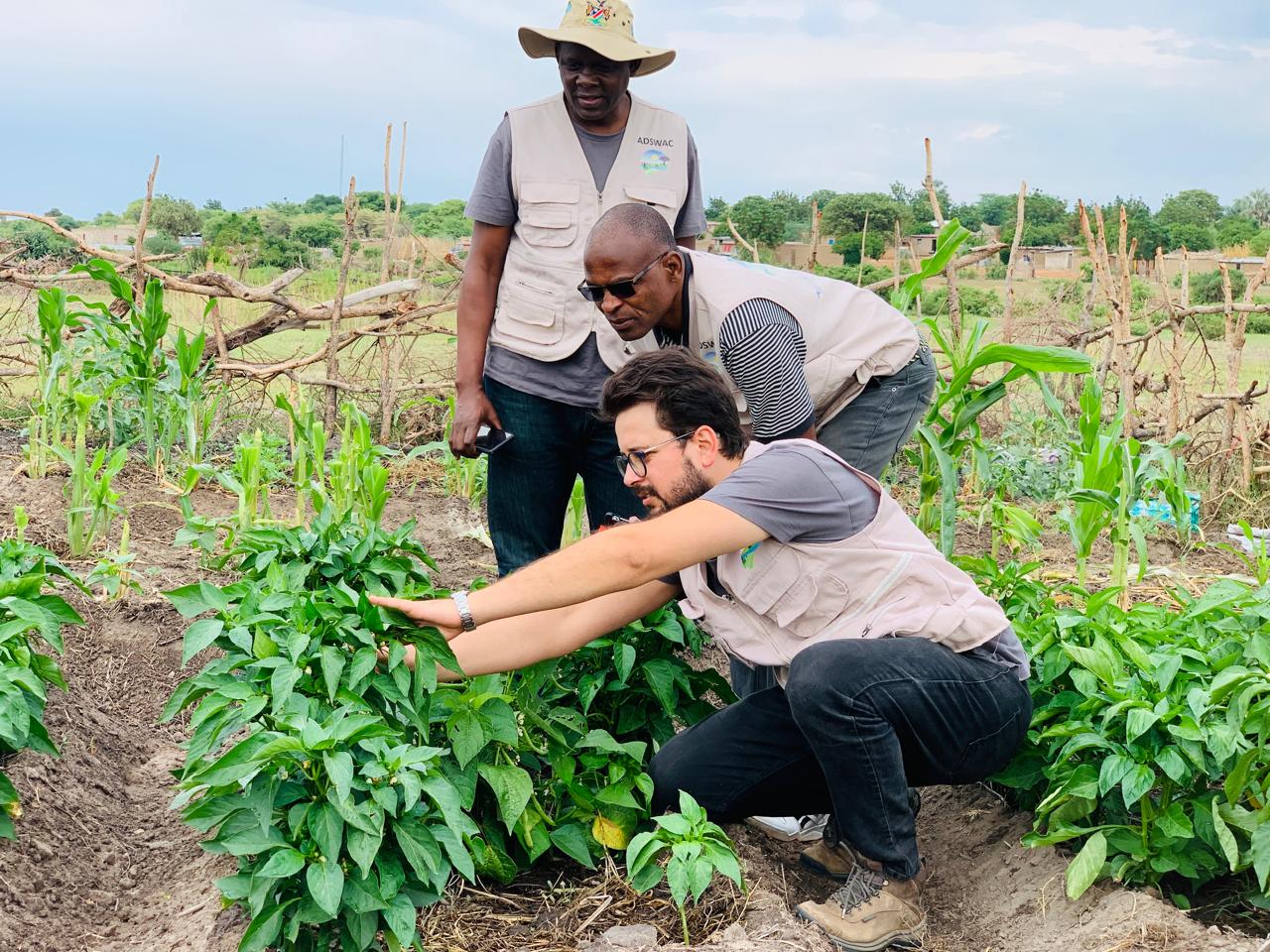
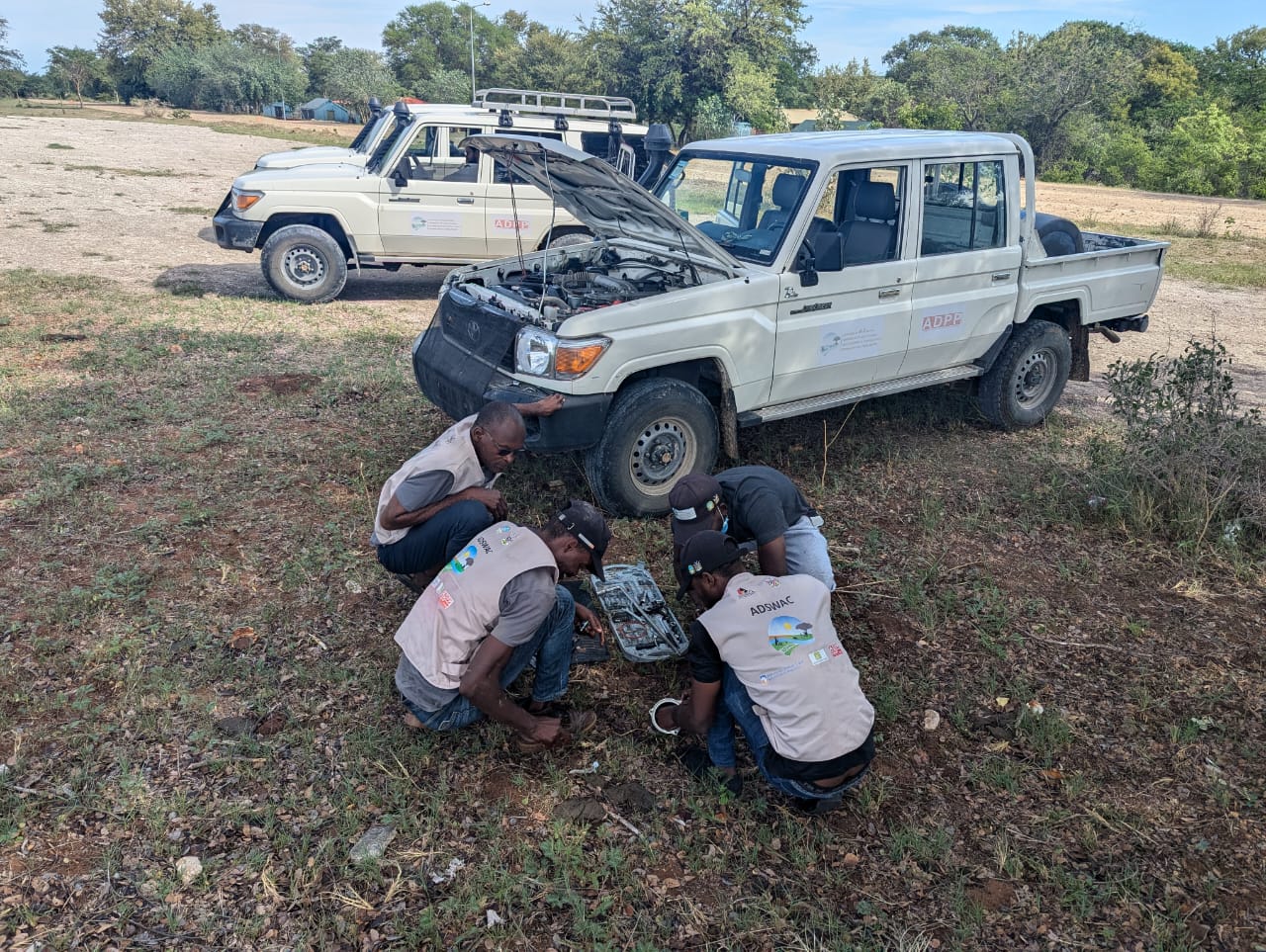
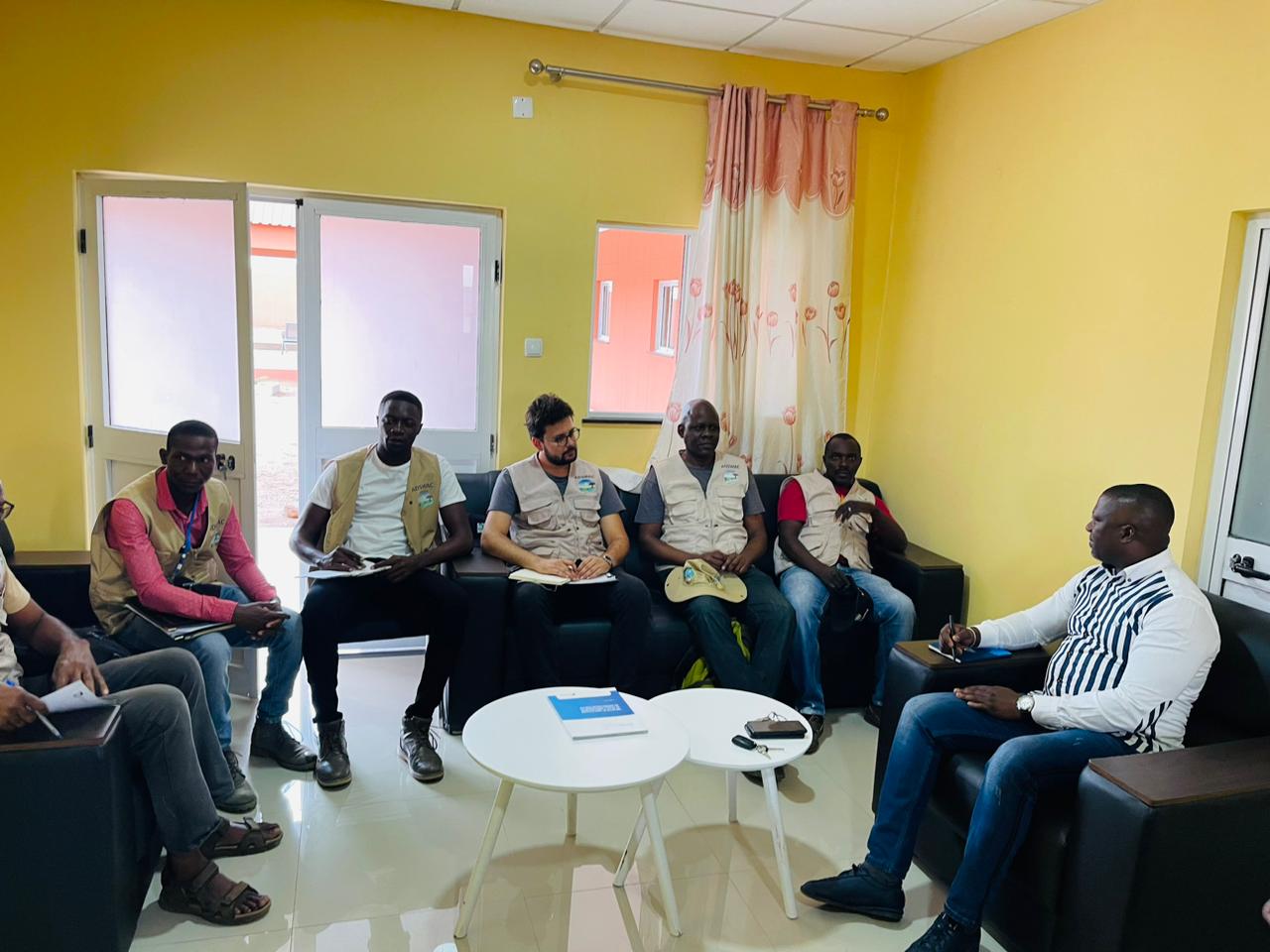
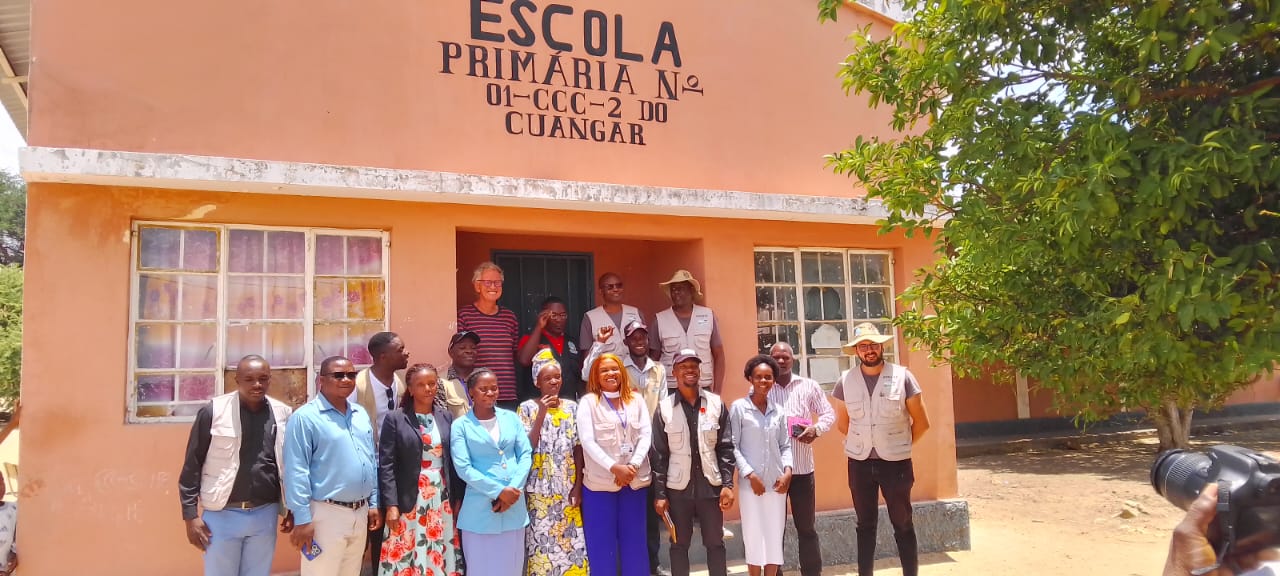
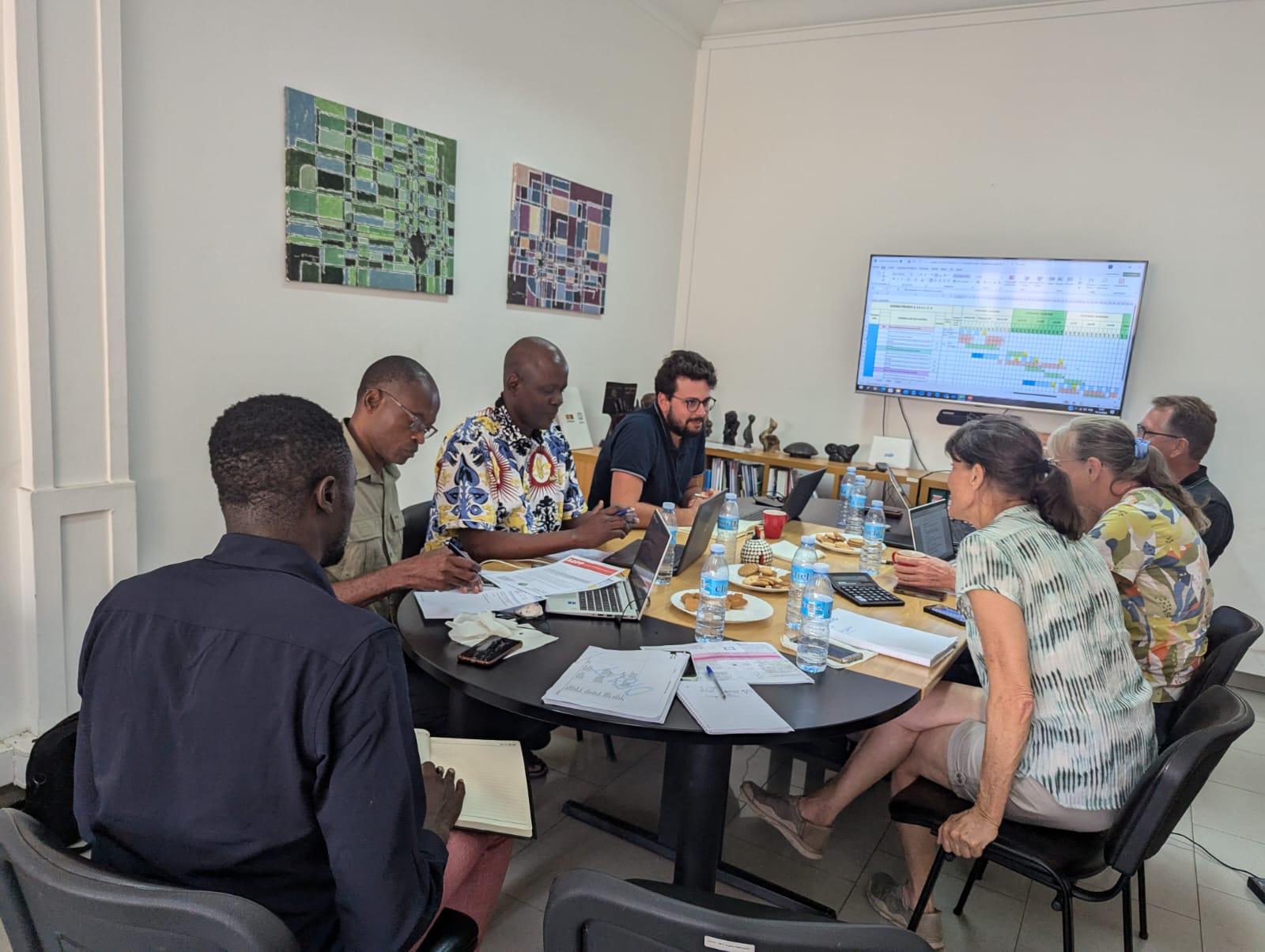
From December 2 to 14, 2024, the Sahara and Sahel Observatory conducted its second supervision and monitoring mission in Angola under the "Enhancing the Adaptation Capacity and Resilience of Communities to Climate Change Impacts and Variability in the Transboundary Region of Angola and Namibia (ADSWAC)" Project. This essential mission aimed to evaluate progress, address challenges, and refine strategies to maximize the project's impact in building resilience and adaptive capacity for communities in the Cuando Cubango Province.
The mission began in Luanda, where the OSS delegation, comprising Mr. Robert Onyango and Mr. Haithem Rejeb, engaged with representatives from ADPP Angola, the Regional and National Project Management Units (RPMU and NPMU), and other key stakeholders. These discussions focused on reviewing technical reports and implementation milestones while ensuring alignment with donor expectations and operational objectives. This collaborative planning in Luanda laid a robust groundwork for the subsequent field visits.
Over ten days, the delegation visited the municipalities of Dirico, Calai, and Cuangar, directly engaging with Producer Organizations (POs), Water User Associations (WUAs), and schools involved in the Green Schools Program (GSP). These interactions provided valuable insights into community-led initiatives to enhance agricultural productivity and climate resilience.
In Dirico, the delegation visited the Ndusha and Shamamputo POs, where members showcased their commitment to adopting climate-adaptive practices despite challenges such as severe drought and wildlife intrusion. The visit to the Khoisan community in Bandoa was particularly impactful, demonstrating the integration of indigenous knowledge and culturally sensitive approaches in adaptation planning.
In Calai, the Lupololo and Tchitombwe POs highlighted promising agricultural initiatives while underscoring urgent needs for fencing materials, seeds, and irrigation systems to expand production and ensure food security. Similarly, in Cuangar, the delegation engaged with community members at the Hoje-ya-Henda and 17 de Setembro Sul fields, where equitable water governance systems have been implemented despite ongoing challenges like water shortages and wildlife disruptions.
The mission also evaluated the Climate Change Adaptation Centers (CCACs) in Dirico, Calai, and Cuangar. These centers serve as vital hubs for capacity-building and knowledge-sharing, equipping communities with essential tools and skills to address climate challenges. Although temporary demonstration fields have started showcasing innovative practices, completing permanent CCACs remains a priority to secure long-term impact.
Despite significant progress, the mission identified critical challenges, including delays in infrastructure development and the urgent need to accelerate activities related to irrigation systems and fencing model plots. Logistical difficulties in accessing project sites were also noted. Addressing these obstacles is vital to maintaining project momentum and achieving sustainable results.
To overcome these challenges, OSS emphasized the importance of targeted capacity-building sessions, the timely provision of essential resources, and enhanced collaboration with municipal administrations. Recommendations also included diversifying livelihoods by integrating non-agricultural activities to strengthen communities’ adaptive capacities to climate change impacts across the region.
This mission reaffirmed OSS’s unwavering commitment to empowering vulnerable communities in the Cuando Cubango Province to adapt to climate change. By fostering collaboration, inclusivity, and innovation, the ADSWAC Project continues to set a benchmark for transformative climate adaptation efforts. Through strategic interventions and sustained partnerships, OSS is paving the way for a sustainable and resilient future for communities in Angola and Namibia.